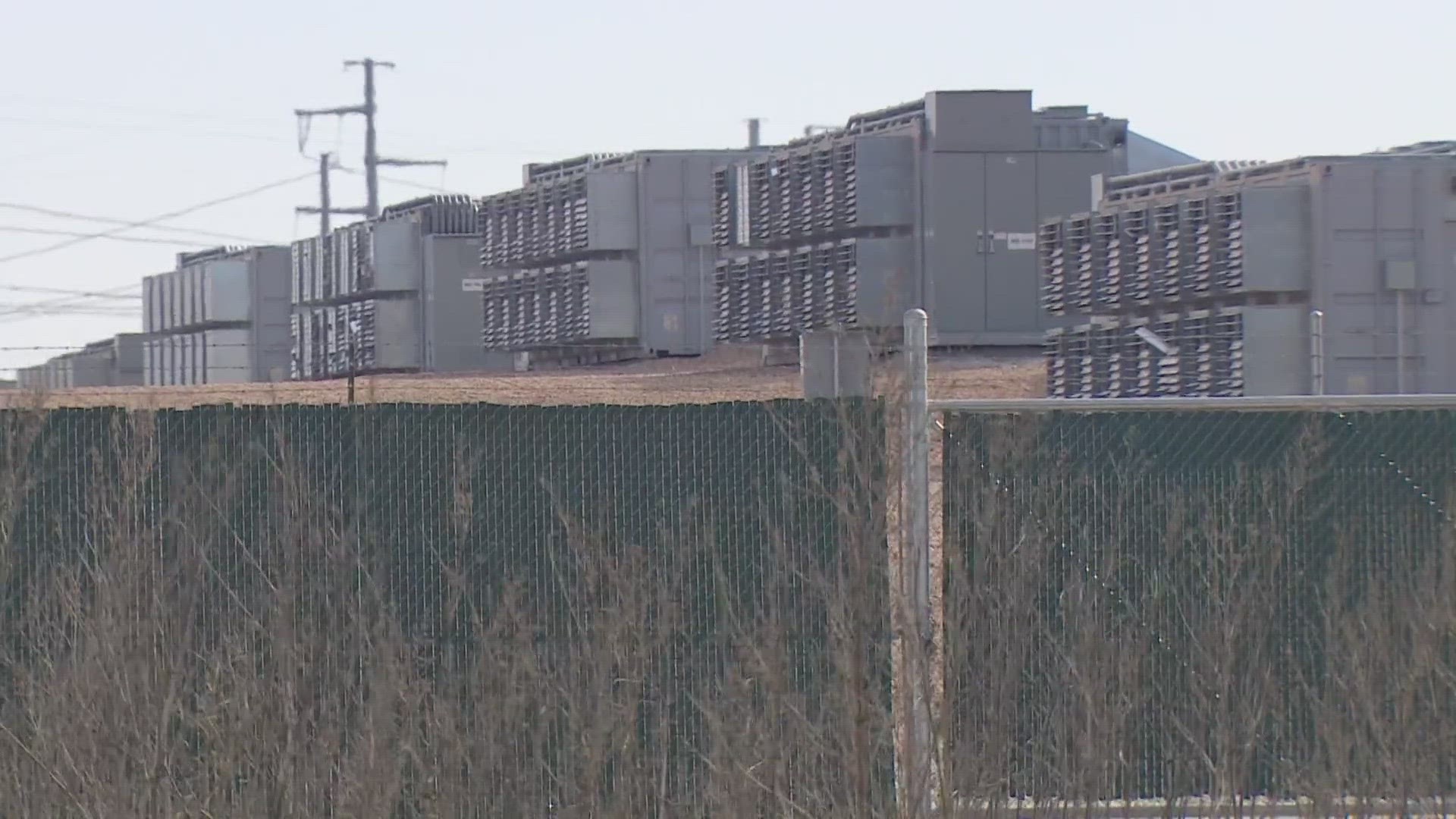DENTON, Texas — Denton Municipal Electric (DME), the city-owned power provider, is negotiating with a cryptocurrency company that hopes to soon locate a Bitcoin mine near the Denton Enterprise Airport.
The operators would draw electricity from the RD Wells substation, nestled between industrial warehouses on South Western Boulevard, and backers say the deal could generate millions in funds for the cash-strapped utility.
“Denton is a great city to do business,” DME spokesperson Stuart Birdseye told WFAA Tuesday. “We’re always open to out-of-the-box thinking and creative projects that might be out there.”
City staff estimates the company, which DME is not yet naming, would pay the utility $2.5 million over five years in exchange for the opportunity to operate. The deal would generate an additional $4.8 million in funds for the City of Denton in the same time frame.
That additional revenue is important for DME, which will soon raise electricity rates to cover a $31 million loss in 2023. Officials mostly blame that deficit on wholesale energy prices, which soared during last summer’s extreme heat.
That's not altogether out of the norm, however. Utilities often purchase electricity from power plants at a “market rate” when grid conditions are tight. This design aims to lure generators into the electricity market during peak hours, ensuring there is enough power to meet Texans’ demand. After the Feb. 2021 winter storm, Texas lowered the cap on wholesale electricity prices to $5,000 per megawatt-hour.
Just the same, utilities like DME are still trying to right their books, and more and more of them are turning to Bitcoin miners to fill their coffers. These cryptocurrency companies generally lease land on a power plant’s property, allowing them to directly tap electricity produced there.
In Hood County, Marathon Digital Holdings Plant is attached to the Wolf Hollow II generator. Giant, industrial fans cool dozens of Bitcoin-mining supercomputers stationed on the property.
There are downsides, however. People as far as eight miles away have complained that the noise affects their balance, hearing and sleep. Some neighbors have signed a petition, begging elected officials to intervene.
But Hood County officials say their hands are tied when it comes to making changes -- because Texas law limits their authority over facilities located outside city limits.
The proposed mine on Western Boulevard in Denton, on the other hand, is located within city limits. The facility here would require 20 megawatts, or about 6 percent of the electricity, needed to run the operation at Wolf Hollow.
It would also be attached to an electricity substation, rather than a natural-gas generator.
Additionally, the lot is located in the Airport Industrial Park, where jets and cargo trucks generate their own noise.
DME spokesperson Birdseye said city council members carefully considered the plant’s potential impact when voting to move forward with negotiations.
“It’s not going to be near any residences or anything like that, but all of our projects like this would have to meet whatever sound standards are out there,” he said. “It’s an advantage of having a municipally-owned electric company: We’re here to serve the community and we always want to have the best interest of the community at heart.”
Even so, there are skeptics.
The Texas Coalition against Crypto Mining was formed partly to fight the construction of a mine in Navarro County, which is believed to be the world’s largest Bitcoin operation.
“They are burning a country’s-worth of energy and water to guess and throw away numbers,” founding member Jackie Sawicky said, referring to the mathematical process by which cryptocurrency mines make their money.
Sawicky wonders whether Texas’s power grid operator, ERCOT, would’ve had to call residents to conserve electricity eight times last summer if the state was not a global leader in Bitcoin mining.
On especially hot days, ERCOT pays Bitcoin miners to reduce their electricity use. The state does not directly offer homeowners incentives to reduce demand, although ERCOT officials are studying the idea.
Cryptocurrency companies often characterize their ability to ramp down consumption as “boosting grid reliability.” Inherently, though, their operations are partly responsible for the tight conditions that the state pays them to mitigate.
“Even if it’s green energy [powering the mines], that green energy could be used to lessen Texans bills or to get us off fossil fuels,” Sawicky said. “It could be used to make productive products.”
DME delivers electricity 100 percent generated by renewable energy.
A larger Bitcoin mine already exists in Denton, also attached to a DME plant.
It generated more than $2 million for the utility in 2023, officials said.

